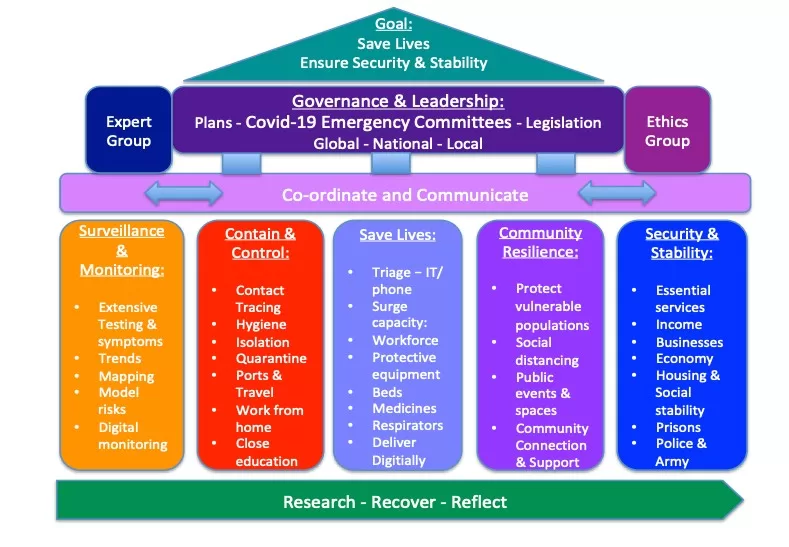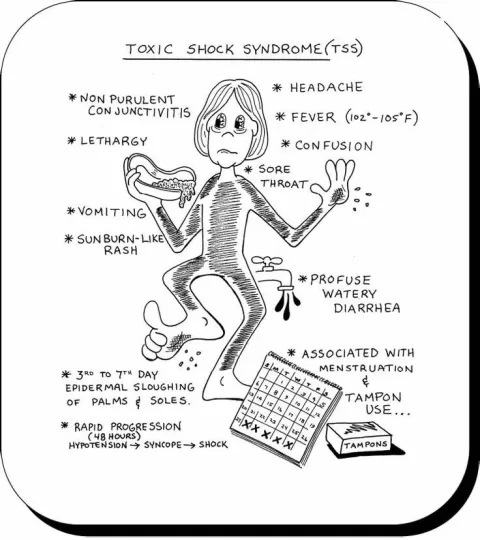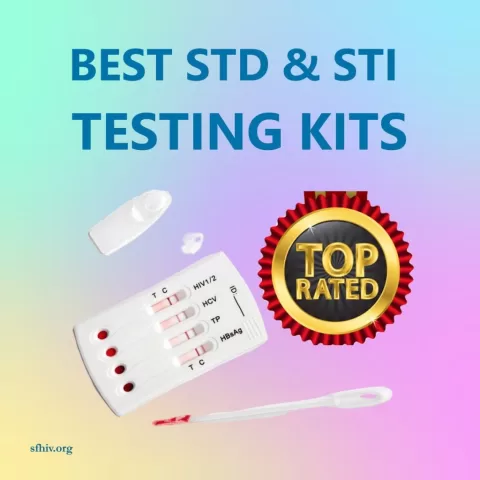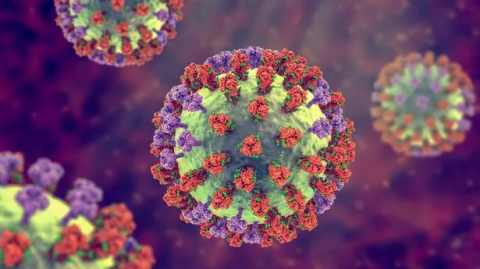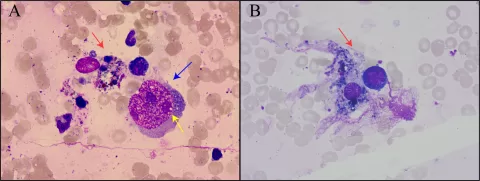The response to a pandemic requires meticulous planning and collaboration on a global scale, as illustrated by the recent WHO-led pandemic exercise. This scenario, known as Exercise Polaris, simulated a worldwide viral outbreak and involved multiple countries working together to enhance their preparedness. The exercise also showcased the newly established Global Health Emergency Corps (GHEC), which aims to streamline international efforts in addressing health crises. Notably, as the world continues to grapple with health emergencies like the meningitis outbreak in Nigeria and rising polio cases in Chad, it highlights the essential role of vaccines and coordinated responses. By reinforcing strategies for pandemic response, countries can better protect their populations and improve outcomes during public health emergencies.
In recent years, global health systems have faced unprecedented challenges, prompting a re-evaluation of strategies to handle infectious disease outbreaks. Terms such as health crisis management and viral outbreak mitigation have become pivotal in discussions among public health officials and organizations. The WHO’s Exercise Polaris not only served as a test of readiness but also emphasized the importance of international solidarity and trust in health responses. As nations contend with seasonal diseases like meningitis and persistent threats like polio, developing comprehensive vaccination strategies is critical in minimizing the impact of these outbreaks. Continuous investment in global health infrastructure, combined with innovative collaborative platforms like the GHEC, will ensure that communities are equipped to face future health emergencies.
WHO Pandemic Exercise: Strengthening Global Health Preparedness
In early April 2025, the World Health Organization (WHO) kicked off a crucial pandemic scenario exercise dubbed Exercise Polaris. This event marked a significant step forward in global health response strategies, simulating a widespread outbreak of a fictitious virus. The simulation was part of the launch for the Global Health Emergency Corps (GHEC), an initiative aimed at establishing a unified and efficient response mechanism during health crises. Over 350 health emergency experts participated, along with representatives from various countries including Canada, Ethiopia, and Ukraine, showcasing a commitment towards international collaboration in tackling potential pandemics.
Mike Ryan, MD, who oversees WHO’s health emergencies program, emphasized the importance of practice and solidarity among nations during such exercises. The successful conduct of Exercise Polaris reaffirmed that countries, when acting together with shared resources and coordinated strategies, can significantly enhance their pandemic preparedness. This simulation comes in the wake of various health emergencies worldwide and highlights the urgent need for robust frameworks to respond effectively to future outbreaks, underscoring the substantial progress made since past pandemic experiences.
Addressing the Meningitis Outbreak in Nigeria
Nigeria is currently grappling with a meningitis crisis, having reported over 800 cases and 70 fatalities this year alone, highlighting the urgent need for vaccination and public health interventions. In response, Gavi, the Vaccine Alliance, has dispatched over 1 million doses of the pentavalent meningococcal conjugate vaccine to combat the outbreak, primarily affecting the northern regions of the country. Seasonal meningitis outbreaks often surge in March and April across Africa’s meningitis belt, which further complicates the timeline for effective vaccination and treatment.
The strategic delivery of vaccines aims to halt the spread of meningitis and protect vulnerable populations during peak transmission seasons. By facilitating access to critical immunization resources, organizations like Gavi play a pivotal role in minimizing the health impacts of meningitis in Nigeria. The ongoing response highlights the necessity for timely intervention and the importance of global partnerships to ensure that affected regions receive essential support and medical supplies.
Polio Cases in Chad: An Ongoing Public Health Challenge
Chad recently faced an increase in polio cases, with the latest reports indicating five cases recorded this year. This spike includes incidents of circulating vaccine-derived poliovirus type 2 (cVDPV2), particularly affecting individuals in the Guera and Hadjer Lamis regions. Despite previous global efforts to eradicate polio, the persistence of the virus illustrates the formidable challenges still present in public health efforts, underscoring the need for continued vigilance and vaccination campaigns.
The Global Polio Eradication Initiative (GPEI) remains committed to eradicating the virus, but the emergence of new cases signals the ongoing risk of polio transmission. Enhanced vaccination efforts and public awareness campaigns are crucial in preventing further infections and achieving long-term eradication goals. Building on the lessons from previous polio outbreaks, international cooperation and timely responses are essential for addressing public health emergencies and safeguarding vulnerable populations.
The Role of Global Health Emergency Corps in Pandemic Response
The establishment of the Global Health Emergency Corps (GHEC) represents a vital advancement in the global health response landscape. Formed to coordinate health efforts during crises, the GHEC facilitates collaboration between nations and health organizations to strengthen preparedness against pandemics. By simulating responses, such as through Exercise Polaris, the GHEC aims to foster trust and efficiency among member states, ensuring a cohesive response strategy when real health emergencies arise.
Moreover, the GHEC emphasizes the importance of well-prepared health systems and interconnected partners ready to mobilize resources and expertise at a moment’s notice. As the world faces an increase in health threats, the GHEC’s role is critical in streamlining responses, enhancing collaborative frameworks, and ultimately improving global health resilience by learning from past experiences and remaining vigilant against future pandemics.
Vaccine Accessibility During Health Emergencies
Access to vaccines during health emergencies is crucial in controlling and preventing outbreaks. In the context of the recent meningitis outbreak in Nigeria, the distribution of over 1 million doses of meningococcal vaccines highlights how timely intervention can save lives and prevent further transmission. Vaccination not only protects individuals but also contributes to wider community immunity, which is essential in mitigating the spread of infectious diseases.
Furthermore, engagement from international organizations, such as Gavi and the WHO, in vaccine distribution emphasizes a collaborative approach in crisis situations. Ensuring that vaccines are accessible, especially in resource-limited settings, can drastically change the course of an outbreak. As demonstrated in Nigeria, effective vaccination campaigns, supported by global partnerships, are foundation stones for achieving better health outcomes in times of emergency.
Learning From Past Outbreaks to Enhance Future Responses
The recent health crises, including the meningitis outbreak in Nigeria and polio cases in Chad, illustrate the importance of learning from past outbreaks to inform future public health strategies. Each incident provides valuable data and insights into effective containment and vaccination strategies, helping health organizations develop robust frameworks for similar scenarios ahead. As countries confront ongoing health challenges, analyzing failures and successes from previous responses becomes imperative.
Integrating lessons learned into comprehensive health planning enables nations to better prepare for future pandemics. Health authorities can refine response mechanisms, streamline vaccine distribution, and foster collaboration among local and international stakeholders. By being proactive and using experiences from past outbreaks, global health entities can enhance their pandemic readiness and ensure they are better equipped to respond to emerging health threats.
Emergency Preparedness in Public Health
Emergency preparedness is essential in public health, particularly in light of the increasing frequency of outbreaks. Effective preparedness strategies encompass not just response mechanisms but also proactive measures such as training, simulation exercises like Exercise Polaris, and developing resource repositories that can be mobilized during a health crisis. This kind of forethought reduces response times and limits the impact of outbreaks on communities.
As public health officials focus on creating robust emergency plans, partnerships with international organizations play a crucial role in enhancing preparedness. By sharing resources, expertise, and data, countries can build stronger health systems capable of effectively managing crises. The emphasis on emergency preparedness will ultimately lead to more resilient public health infrastructures that can withstand future challenges.
Collaboration Across Borders for Global Health
In an interconnected world, collaboration across borders becomes indispensable for effective public health response to pandemics. The participation of multiple nations in exercises like Exercise Polaris illustrates a collective commitment to tackling health emergencies globally. By pooling resources, knowledge, and experiences, countries can coordinate more effectively and deliver timely responses to outbreaks, as demonstrated in Nigeria and Chad.
Shared learning and cooperative efforts allow countries to strengthen their health systems and improve readiness for future crises. Effective communication and sustained partnerships ensure that emerging health threats are managed with agility and precision, significantly reducing the impact on vulnerable populations. By prioritizing collaboration, the global community can foster a united front against health emergencies, setting a precedent for future cooperative responses.
The Importance of Public Awareness in Health Crises
Public awareness plays a pivotal role in the management of health crises. During outbreaks like meningitis and polio, informing communities about prevention methods, symptoms, and vaccination campaigns is crucial for controlling spread. Increased public knowledge encourages individuals to participate in vaccination programs, adhere to health advisories, and seek medical attention promptly, which collectively enhance community health resilience.
Moreover, effective communication campaigns can dispel myths and misinformation that often accompany health emergencies. By empowering the public with accurate and timely information, health authorities can foster trust and compliance, which are essential for success in managing outbreaks. Increased public engagement not only aids in controlling diseases but also builds a foundation for healthier and more informed communities in the long run.
Frequently Asked Questions
What was the purpose of the WHO pandemic exercise Exercise Polaris?
The WHO pandemic exercise named Exercise Polaris aimed to simulate a global outbreak scenario, testing the newly established Global Health Emergency Corps (GHEC) for effective pandemic response and coordination among participating nations.
How is the Global Health Emergency Corps (GHEC) relevant to pandemic response?
The Global Health Emergency Corps (GHEC) plays a crucial role in pandemic response by enhancing global collaboration and coordination among countries, as demonstrated during the WHO-led Exercise Polaris, where over 350 health emergency experts evaluated response strategies.
What measures are being taken in Nigeria to address the meningitis outbreak?
In response to the meningitis outbreak in Nigeria, over 1 million doses of the meningococcal conjugate vaccine have been allocated from Gavi’s stockpile, targeting the affected regions to curb the spread of the disease during its peak season.
What recent developments have occurred regarding polio cases in Chad?
Chad has recently reported a new case of polio, bringing the total to five this year. These developments highlight the ongoing challenges in pandemic response related to vaccine coverage and monitoring for polio in the region.
How can exercises like Exercise Polaris improve pandemic response strategies?
Exercises like Exercise Polaris enhance pandemic response strategies by simulating outbreak scenarios, allowing health officials to practice coordination, build trust among partners, and identify strengths and weaknesses in their response systems.
Why is the timely distribution of meningitis vaccines critical during an outbreak in Nigeria?
Timely distribution of meningitis vaccines in Nigeria is critical because it helps to rapidly immunize at-risk populations, especially during the seasonal peaks of meningitis outbreaks, thereby reducing morbidity and mortality rates.
| Key Point | Details |
|---|---|
| WHO-led Pandemic Exercise | Exercise Polaris simulated a global outbreak of a fictional virus to test new coordination mechanisms for pandemic response. |
| Global Health Emergency Corps (GHEC) | Established in May 2023, GHEC aims to enhance global health emergency collaboration and preparedness. |
| Meningitis Situation in Nigeria | Nigeria received over 1 million doses of vaccine in response to a meningitis outbreak with over 800 cases reported. |
| Polio Cases in Chad | Chad reported a total of five polio cases this year, including cases of circulating vaccine-derived poliovirus. |
Summary
Pandemic response is crucial in our global health landscape, as exemplified by the recent WHO-led exercises and proactive measures against outbreaks. With concerted efforts like the Global Health Emergency Corps, we aim to enhance our preparedness for future pandemic threats. The ongoing situations in Nigeria and Chad underscore the importance of timely interventions and vaccines to tackle public health emergencies effectively.
The content provided on this blog (e.g., symptom descriptions, health tips, or general advice) is for informational purposes only and is not a substitute for professional medical advice, diagnosis, or treatment. Always seek the guidance of your physician or other qualified healthcare provider with any questions you may have regarding a medical condition. Never disregard professional medical advice or delay seeking it because of something you have read on this website. If you believe you may have a medical emergency, call your doctor or emergency services immediately. Reliance on any information provided by this blog is solely at your own risk.



